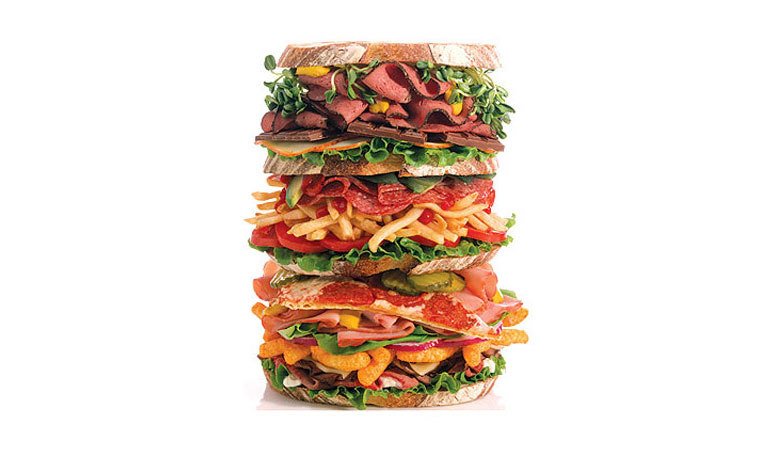In junior high school, I had a craving.
For food. Junk food.
After Little League baseball practices full of ground balls and hook slides, line drives and double plays, I’d eagerly anticipate a ride to the nearest convenience store.
Entering the temple of delights, I’d dash to the back and fill up a large cup with a spritz of every variety of soda on the soda machine (a drink my friends dubbed—perhaps all-too-aptly—a “suicide” drink). Complement that with a bag of crunchy “onion rings” and things got better. To top it off, with any leftover change, I’d scoop up a glazed “apple pie” packed with a gooey filling of, er, “apples.”
Excuse me while I wipe the drool off of my keyboard.
Now, while I no longer eat this way as an adult, why is it that when writing this I had to pause when I realized my mouth was watering when describing it? What is it about food laden with salt, fat, and sugar that has such a visceral pull on me, years later?
I’m certain that more and more consumers are becoming aware about the health costs of junk food. Yet major food corporations continue to manufacture junk food of all varieties in response to consumer demand, designing and marketing products with “sensory-specific satiety“and “vanishing caloric density.”
From hidden sugars in yogurt and pasta sauce to fast-food salads with more calories than burgers, our system of food production and consumption is broken in countless ways. And yet it still reaps enormous financial profits for the food industry.
I’d guess that many well-read and thoughtful folks implicitly sense that junk food is not ideal nutrition and would respond to this news with a phrase like “tell me something I don’t know.” Yet, when food products meticulously tailored to hijack primordial regions of our brains are all over the shelves of our stores, I believe one thing is clear: mere knowledge and facts about junk food aren’t sufficient to help us form new eating habits as a culture.
Why do we choose food that is contrary to what we know to be good for our health? For anyone caught in the spell of junk food, kicking such an eating habit is supremely challenging, akin to breaking a drug addiction. Meditating on this sobering insight curbs any tendency I have to be judgmental towards myself or others when we make unwise choices in our eating patterns.
We need new actions—new cues, routines, and rewards. Those new habits can be as simple as shopping from the “outer ring” at the grocery store (i.e. avoiding most of the aisles) to loading our pantries with healthy snacks and, in a sense, stacking the deck in our favor when it comes to making healthy food choices.
While forming new patterns as individual shoppers can have long-term effects on our individual health, what impact can our personal choices have on our global food system? How effective is consumer advocacy? In response to shoppers’ demands, even juggernauts like Walmart and Target began to carry organic yogurt (thanks to Josh for alerting me to this). And while this might seem like a meager drop in the bucket, it is a reminder that we can vote with our dollars at the supermarket.
I believe that taking simple yet thoughtful steps in our purchasing habits can impact our markets on a systemic level and shape how we make, package, transport, sell, buy, prepare, and eat food. Our choices as consumers can have global effects and help create a tipping point in favor of more nutritious, wholesome, and sustainable food for everyone. As you partner with us to not only feed kids but examine the role fast food and junk food play in your diet, remember the impact all of our choices can have on making positive changes in our global food system.

